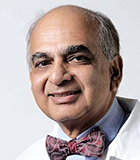Professional Development Core
Team

Vivian Fonseca, MD
Core Director
Tulane University

Daniel Kapusta, PhD
Core Co-Director
LSU Health New Orleans

Leanne Redman, MS, PhD
Core Co-Director
Pennington Biomedical Research Center

Michelle Wilson, MPH
Research Navigator
Tulane University
mwilso21@tulane.edu
(504) 988-6998
Contact this core
Email: CareerDevel@LACaTS.org
About This Core
Professional Development (PD) Core facilitates training opportunities across our member institutions and offers a competitive Roadmap Scholar Clinical and Translational (C/T) Research Degree Program to promote development of human capital (scientists, clinicians, professional staff and leaders) essential for continuation and growth of Louisiana’s clinical and translational research bases. The core is led out of Tulane University.
The overall goal of the Professional Development Core is to educate and train academic faculty and trainees to pursue clinical/translational research to improve health outcomes and reduce health disparities of Louisiana residents. We offer professional development programs in C/T research to a broader spectrum of health professionals including dentistry, nursing, psychology, social work, and pharmacy.
Research Navigator
The PD Core's Research Navigator serves as a resource to the Roadmap Scholars and other investigators to help guide them through the program, available LA CaTS resources, and their study from start to finish. Faculty can request assistance from the Navigator on SPARC.
Core Programs & Resources
The Roadmap Scholars program is a KL2-like (NIH Mentored Career Development Award) program that targets junior faculty who are just entering the field of clinical and translational research. The program supports 75% of the scholar’s salary for 2 years to provide protected time for research and training; it also covers the cost of tuition for a 40-credit Master of Science in Clinical Research (MSCR) degree from Tulane University. This program provides the opportunity for junior faculty, together with their mentors, to design an individual Roadmap that includes didactic courses and mentored research.
The Tulane MSCR Program is a structured program leading to a Master of Science in Clinical Research degree from the Tulane University School of Medicine. It usually requires 2 to 3 years to complete the curriculum including the mentored research requirement.
The program features:
- formal didactic training providing the tools to conduct modern clinical and translational research;
- a clinical research and clinical medicine seminar series, providing peer interaction and mentor guidance on research topics;
- a mentored clinical research project;
- and an annual MSCR retreat.
Distance Learning (DL) methods are used to deliver research education resources to health professionals and trainees in Louisiana for MSCR courses, as well as all LA CaTS Junior Investigator, Senior Investigator, and Clinical Research Coordinator Trainings. The Zoom platform has been in use since 2018 to allow Roadmap Scholars and MSCR degree-seeking faculty members residing outside of metro New Orleans to participate in lectures remotely. Lectures have been recorded and shared to Canvas, an online course management platform, which allows for asynchronous but timely participation in all courses.
The PD Core sponsors a one- or two-day annual retreat focusing on contemporary research topics and themes designed to enhance our programs and better prepare Scholars for careers in clinical/translational research. The retreats include an opportunity for the LA CaTS Scholars to network and present their research.
Part of the retreat features a distinguished plenary speaker, open to all investigators, on a topic of interest.
See past plenary talks on our Video Library page.
Tulane offers a one-year Master’s degree in Clinical Research Methods (MSCRM) degree, and a 10 credit Certificate in Clinical Research.

